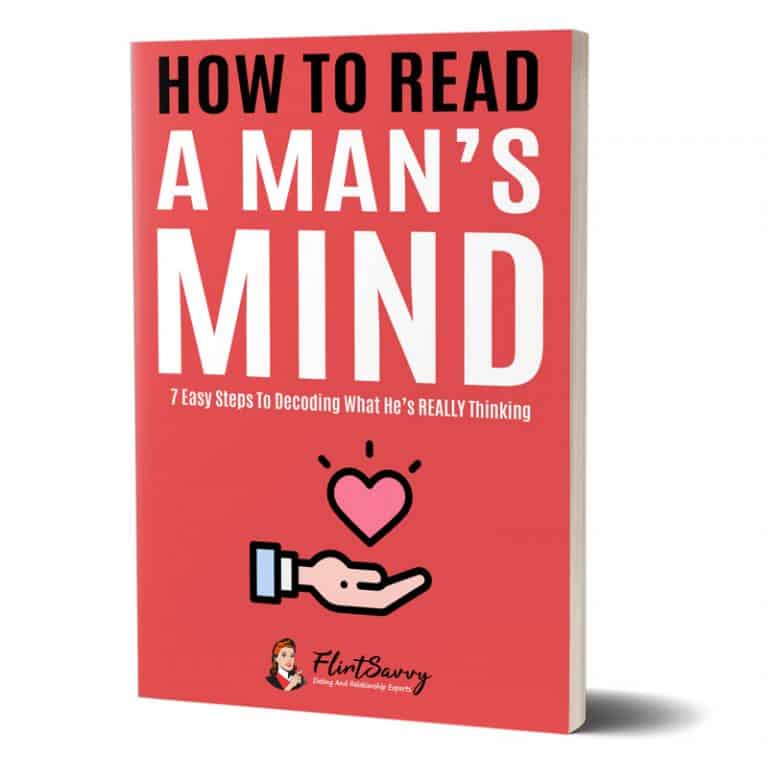Are you feeling unappreciated in your relationship because your boyfriend rarely compliments you?
It’s natural to want to feel desired and attractive, but sometimes our partners may not express their admiration for us in the way we expect.
Before jumping to conclusions or feeling hurt, it’s important to understand that there could be a variety of reasons why your boyfriend doesn’t compliment you.
In this article, we’ll explore some of the potential reasons behind this behavior and offer tips on how to communicate with your partner about your needs.
So, let’s dive in and uncover the truth behind the lack of compliments in your relationship.
Why Doesn’t My Boyfriend Compliment Me?
There are several possible reasons why your boyfriend may not be complimenting you. It could be that he is simply not comfortable with giving compliments, especially if he is a shy person. Some people find it difficult to express their feelings verbally, and this may be the case for your boyfriend.
Another possibility is that he may not realize how important compliments are to you. He may not understand that you need to hear positive feedback in order to feel appreciated and loved. It’s important to communicate your needs to your partner and let him know how much his compliments mean to you.
It’s also possible that your boyfriend may be avoiding complimenting your physical appearance because he wants to show that he values your personality more than your looks. This can be a positive thing, but it’s important to strike a balance between appreciating someone’s inner qualities and acknowledging their external beauty.
Finally, it’s important to consider whether there may be deeper issues at play. If your boyfriend is consistently ignoring you or withholding affection, this could be a sign of emotional abuse. It’s important to recognize the signs of abuse and seek help if necessary.
Understanding Different Love Languages
Understanding different love languages is crucial in any relationship. The concept of love languages was introduced by Gary Chapman, who identified five different ways people give and receive love: words of affirmation, quality time, physical touch, acts of service, and gifts.
It’s important to recognize that everyone has a different love language, and what works for one person may not work for another. For example, if your love language is words of affirmation, you may feel most loved when your partner tells you how much they appreciate you. However, if your partner’s love language is quality time, they may feel most loved when you spend uninterrupted time together.
It’s also important to note that just because someone’s love language is different from yours doesn’t mean they don’t love you. It simply means they express their love in a different way. Understanding your partner’s love language can help you better communicate and connect with them.
When it comes to compliments specifically, some people may not feel comfortable giving them because it’s not their preferred way of expressing love. This doesn’t mean they don’t find you attractive or appreciate you – they may just express it in a different way.
It’s important to communicate with your partner about your needs and understand their love language as well. By doing so, you can build a stronger and more fulfilling relationship based on mutual understanding and appreciation.
Cultural Upbringing And Gender Role Expectations
Cultural upbringing and gender role expectations can also play a significant role in how comfortable men are with giving compliments. In many cultures, men are taught to be stoic and unemotional, and expressing feelings of affection or admiration may be seen as a sign of weakness. Additionally, traditional gender roles often place a greater emphasis on women’s physical appearance, while men are valued more for their achievements or status.
Research has shown that men and women have different priorities when it comes to selecting a partner. Men tend to prioritize physical attractiveness in a potential partner, while women may prioritize social status or personality traits such as kindness and intelligence. This can lead to a situation where women may feel pressure to maintain a certain level of physical attractiveness in order to be valued by their partners.
Furthermore, there may be societal expectations that men should be the ones giving compliments, rather than receiving them. This can create a situation where men may feel uncomfortable or even emasculated by giving compliments to their partners.
It’s important to recognize that these cultural and societal expectations can be deeply ingrained and difficult to overcome. However, it’s also important to challenge these expectations and work towards creating a more equal and supportive relationship dynamic. Encouraging open communication and expressing appreciation for each other’s qualities can help break down these gendered barriers and create a more fulfilling relationship for both partners.
Personal Insecurities And Communication Barriers
One of the main reasons why your boyfriend may not be complimenting you is because of personal insecurities and communication barriers. It’s possible that your boyfriend may feel insecure about expressing his feelings and emotions, especially if he has been hurt in the past. This can lead to a lack of communication and difficulty in expressing himself, which can make it challenging for him to give compliments.
In addition, if you are feeling insecure in the relationship, this can also create communication barriers. When you feel insecure, it can be difficult to effectively communicate with your partner and express your needs and desires. This can lead to misunderstandings and a lack of emotional connection.
To overcome these personal insecurities and communication barriers, it’s important to work on building trust and open communication with your partner. This means being honest about your feelings and needs, as well as actively listening to your partner when they express themselves. It’s important to create a safe space where both partners feel comfortable sharing their thoughts and emotions without fear of judgment or rejection.
It’s also important to recognize that giving compliments is a two-way street. While it’s important for your boyfriend to give you compliments, it’s also important for you to give him compliments and acknowledge his positive qualities. This can help build confidence and strengthen the emotional connection between you both.
How To Communicate Your Needs To Your Partner
If you feel like your boyfriend is not complimenting you enough, it’s important to communicate your needs to him in a clear and non-confrontational way. Start by expressing your feelings and letting him know that his opinion matters to you. Tell him that you feel special when he compliments you and ask him why he has stopped doing so.
It’s important to use “I” statements instead of blaming or criticizing your partner. For example, instead of saying “You never compliment me anymore,” try saying “I feel unappreciated when I don’t receive compliments from you.” This approach is less likely to put your partner on the defensive and more likely to lead to a productive conversation.
Be open and receptive to your partner’s response. He may have a valid reason for not complimenting you, or he may need some guidance on how to express his feelings more effectively. If he’s not comfortable giving compliments, try complimenting him more often. This may encourage him to do the same in return.
Remember that communication is key in any relationship. If you’re feeling unloved or unwanted, it’s important to talk to your partner about it and work together to find a solution. With patience, understanding, and open communication, you can strengthen your relationship and build a deeper connection with your partner.
Finding Other Sources Of Validation And Self-Love
If you’re feeling like you’re not getting enough validation and self-love from your relationship, it’s important to remember that there are other sources of validation and self-worth. It’s important to cultivate a healthy sense of self-esteem that isn’t dependent on your partner’s approval.
One way to do this is to focus on your own accomplishments and strengths. Take some time to reflect on your own achievements, no matter how small they may seem. Write them down and remind yourself of them when you’re feeling down. Celebrate your successes and give yourself credit for your hard work.
Another way to find validation and self-love is to practice self-care. Take care of your physical, emotional, and mental health by eating well, exercising regularly, getting enough sleep, and engaging in activities that make you happy. This can include hobbies, spending time with friends, or simply taking some time for yourself.
It’s also important to surround yourself with positive people who lift you up and support you. Seek out friends and family members who make you feel good about yourself and avoid those who bring you down or make you feel insecure.
Finally, consider seeking professional help if you’re struggling with self-esteem issues or feeling stuck in your relationship. A therapist or counselor can help you work through your feelings and develop healthy coping mechanisms for dealing with negative thoughts and emotions.
Remember, your sense of self-worth should not be dependent on anyone else’s approval or validation. By cultivating a healthy sense of self-love and finding other sources of validation, you can improve your overall happiness and well-being, both in and out of your relationship.






